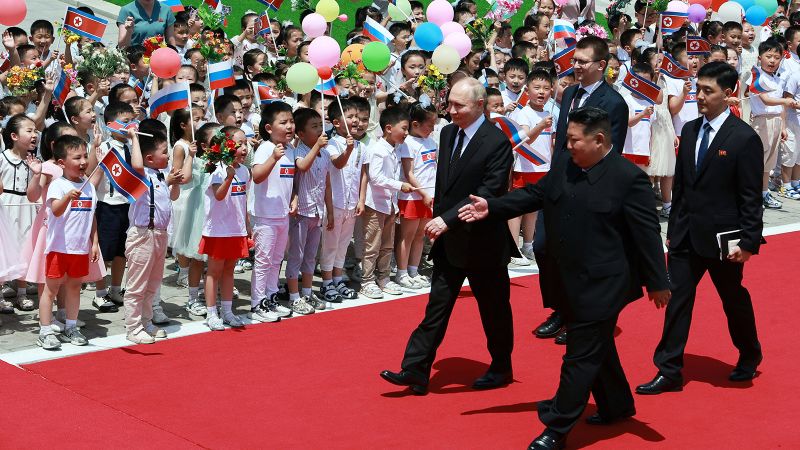Vladimir Putin said Russia and North Korea have ramped up ties to a “new level,” pledging to help each other if either nation is attacked in a “breakthrough” new partnership announced during the Russian president’s rare visit to the reclusive state.
Thousands of North Koreans chanting “welcome Putin” lined the city’s wide boulevards brandishing Russian and North Korean flags and bouquets of flowers, as Putin kicked off his first visit to North Korea in 24 years with a finely choreographed display of influence in the dictatorship.
The pair then signed the new strategic partnership to replace previous deals signed in 1961, 2000 and 2001, according to Russian state news agency TASS. “The comprehensive partnership agreement signed today includes, among other things, the provision of mutual assistance in the event of aggression against one of the parties to this agreement,” Putin said after the meeting.



North Korea had a war with the US once, after they gambled incorrectly that the US would not respond to an invasion of South Korea. I doubt that Pyongyang would intentionally enter into another.
https://en.wikipedia.org/wiki/Korean_War